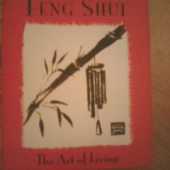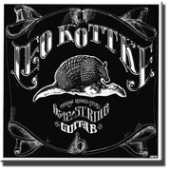Entering the Realm of Hip Hop
smoking after an oil change
Toledo's Tatum
There surely have to be other good things about Toledo in addition to cheap rent and the fact that Art Tatum was born there. The Toledo that Tatum knew most assuredly was drastically different than what one might find today, but it also shaped him.
After working in the Mid-West, Tatum tried out both coasts, while continuing to amaze fans, concert goers and anyone that had ever touched a piano. The ‘20s and ‘30s was an odd time for piano music. There were still classical figures who maintained general popularity – as opposed to today seeing as most Americans(including myself) would be hard pressed to name too many composers.
The remarkable thing about Tatum was that he was equally dexterous with either hand: changing rhythmic ideas presented no difficulty when combined with his fluttering solos. On his recording of “In a Sentimental Mood,” Tatum takes Ellington’s standard and applies his own concept of time, space and rhythm to it. But that’s just one setting.
While Tatum is most well known for his solo dates, he led a number of groups in his time as well. Members he counted in his ranks included Tiny Grimes, Ben Webster, Roy Eldridge and Jo Jones amongst others.But I’m really only thinking of all of this because I found Masterpieces at the library today. How little I would know about jazz if not for those buildings. If it just so happens that your local branch shouldn’t carry this selection, Piano Starts Here is literally in every used record store on the face of the planet for a dollar. I got mine at Half Price Books.
That should hopefully give you some incentive to get down there and look in those dusty crates.
Flink Jazz
In the vast musical lexicon of jazz pianists, one might note Scott Joplin, Herbie Hancock or Toledo’s Art Tatum, but will Mason Flink come to be included in that list?
When one thinks of Texas, jazz music is not, most likely the first concept that comes to mind, but Flink is a National Merit Finalist and perhaps a future concert pianist. That wouldn’t be all that astounding except for one fact: Flink has eight fingers.
Born with ulnar dysplasia (also know as ulnar club hand) Flink has dealt with having a limited right hand, playing melodies with just three digits. One might than assume that his playing is rhythmically focused given to ragtime concepts or barrel house blues, but it’s not. His playing can even touch on classical compositions including the likes of Chopin.
Another assumption might be that Flink has issues with his physical limitations, but since these have been with him since birth, he doesn’t really think of it too much. What he does focus on is displaying his talents, whether it’s writing, playing music or sports in part to show others that even with a physical anomaly anyone can accomplish whatever task they set out to.
One manner in which he has set out to do this is to perform at benefits. Flink’s latest appearance in such a venue was set up through his church – an important part of his life. Performing at the Texas Scottish Rite Hospital for Children, Flink sought to display his musical prowess while raising awareness of an organization that, amidst this economy, needs support from every sector of his community.
ARTIST NEEDED
inquiry
looking for pharmacy that dont require consult
buymeds
Brock Check this out, Few Questions.
His Dark Materials - an Overview
“New Criticism… stresses close attention to the internal characteristics of the text itself… concentrating on such formal aspects as rhythm, meter, theme, imagery, metaphor, etc.”New Criticism was created by a group of American critics from southern universities, following the first World War. They wished to avoid Social and Historic criticisms, so they developed a criticism which is dedicated to the study of the text itself. When applied to The Golden Compass, by Philip Pullman, and the rest of the series, His Dark Materials, there is an insistent underlayer of sermonizing in what superficially presents itself as a harmless children’s book. The plot and the choices of the character, and even the settings, when closely examined, all contribute to the not-so-hidden-intolerance of the series. Moral questions and ideas are thoroughly explored in the books written by a militant atheist; and Pullman doesn't pretend that Deity is irrelevant. Again and again he attacks the questions: Is there a God? If so, is that a good thing? With heavy-handed plots like the Church trying to rule the world and having to assassinate the Archangel, His Dark Materials gets across the idea that our Authority, God, and His Kingdom, Heaven, hurts the world a lot more than helps it. In this, of course, he leads the common atheist complaint that religion is a pox on the planet. From the Formalist point of view, Pullman’s word use is unsubtle. Lyra, the heroine, says in The Golden Compass,
“Dust… the Church and… Mrs. Coulter… want to destroy it too… if they all think it’s bad, then it must be good. We believed them, even though we could see that what they were doing was wicked and evil and wrong.”Lyra clearly states that the Church was wrong, and what they must think was wrong must be good. Throughout the book, the Church and the Magisterium are shed in a terrible light; they not only lust for the domination of the world, but enthusiastically subject children to cruel, torturous experiments when cutting their daemons away. In casting the Church as the hand to administer the cruel deeds, Pullman forms a thread in the meaning of the text, which in his last two books, just keeps growing more thick. A quote from The Golden Compass:
“Ever since Pope John Calvin had moved the seat of the Papacy to Geneva and set up the Consistorial Court of Discipline, the Church’s power over every aspect of life had been absolute.” (27)Throughout the books, Mrs. Coulter’s character is a point of interest. In The Golden Compass, she can only be described as evil, as she tries to capture and even kill her own daughter, while becoming a force against all good in the world. It is not coincidental that it is while she is allied with the Church, that she is the instrument of harm. Moreover, throughout the next two books, The Subtle Knife and The Amber Spyglass, Mrs. Coulter slowly turns back to good as the love for her daughter redeems her; she becomes a well-loved character precisely to that extent to which she is turning against the Church and ultimately dying in a “sacrifice” with her Asriel -- to actually kill the Archangel. Her alignments are simple; while she is allied with the Church, she is the personification of evil; when she is persuaded to right the Church, and the Authority, she is a soldier for goodness. In The Subtle Knife, there is a setting that, while not so blatant in its meaning, cannot be overlooked. Lyra comes to almost a shadow realm of our world, where there are Specters who eat adults’ souls, but who leave children alone. It is implied that it is because the children are innocent- not grown up yet. From a Formalist outlook, it might be said that this is because adults have decided on religion, on their view of right and wrong, and that their convictions are solidly made. But the children do not know (at least in the books) and they change their viewpoints quite often. They see things openly and from a completely open perspective. To quote The Subtle Knife,
“This is as the heart of everything, this difference between children and adults! It contains the whole mystery of Dust!” (199)The plot in The Subtle Knife might be sharp, but I myself wouldn't charge it with subtlety. It holds the framework for the stunning conclusion of The Amber Spyglass and sheds light on the meaning of the first book. In The Subtle Knife, it comes to view that Asriel, one of the lead characters, is gathering an army to fight a war against heaven -- begun ages ago -- implied that it was Lucifer a.k.a Satan who was the champion of the first war, or perhaps, the one that wasn’t strong enough, or who didn’t do it the right way the first time. Asriel is planning to kill the Authority, in his moving Cloud and overthrow the monarchy of Heaven, but instead of trying to overtake it and rule his own way, he is planning to leave it Head-less, thereby instituting the Republic of Heaven. It is a quest that all the heroes join, including the witches and Lyra and Will. The bene elim, turned angels, say to Will at the end of the book,
“You must come with us now. Lord Asriel needs you at once. The enemy’s power is growing every minute… Follow us and help us win.” (326)This clear use of the word ‘enemy’ as applied to the Authority and his angels typify the theme and tone of His Dark Materials. ............. That Pullman has the right to his views, in a free society, is clear. Why he should have tried to misdirect us as to his intent is rather less so. Next: Amber Spyglass image: http://stephennewell.files.wordpress.com/2007/11/his-dark-materials-tril...

